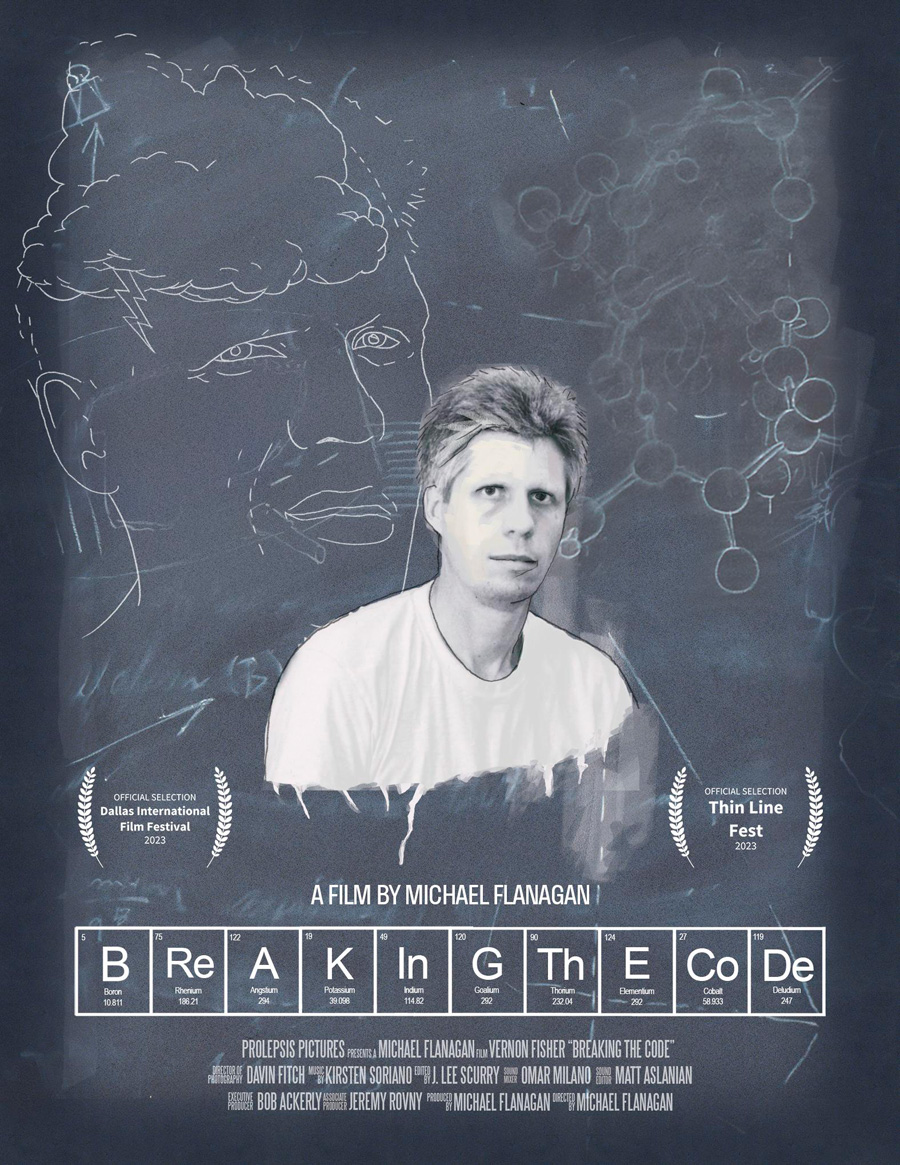
Michael Flanagan needed a subject for a film that would serve as a thesis for his Master of Fine Arts degree in documentary production and studies. He found it on campus.
Whenever he passed by the newly built Art Building in 2019, he noticed an exhibit on display in the CVAD Gallery -- but he kept putting off visiting it.
Then, the last day for the show came and the gallery was closed. He thought he'd missed his chance.
But a staffer allowed him to see the exhibit, which featured the works of Vernon Fisher from 1980 to 2019, including Time Falling Objects.
"The most vivid memory I have is getting to the back of the gallery and seeing a large artwork in Vernon's signature chalkboard painting style," Flanagan says, remembering that he connected that piece to Evidence of Houdini's Return, a work of Fisher's that he saw at the Blanton Museum of Art in Austin several years earlier.
Flanagan was in awe.
"I thought, 'I need to figure out who made this and find out if I could make a documentary about them," Flanagan says.
Flanagan would make Breaking the Code, a documentary about Fisher, UNT Professor Emeritus of art and one of the leaders of post-modern painting, who died in April. The film explores how Fisher's work was made and the impact it had on others, including UNT's art students.
"I was struck by how much respect people had for Vernon throughout his life," Flanagan says. "Whether it was a childhood friend admiring Vernon's commitment to a grueling training schedule as they chased a state title in track, or a college classmate reminiscing on Vernon's leadership in organizing historic demonstrations for social justice in the 1960s -- not to mention the international acclaim he received for his art."

